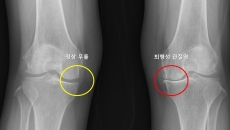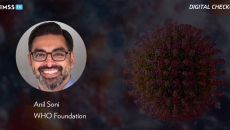Population Health
Also, the South Korean government is exploring developing a new AI model to predict the efficacy of traditional Korean medicines.
The model has demonstrated high accuracy in identifying causes and predicting the progression of brain and spinal cord infections.
In March, the company received FDA marketing authorization for the first at-home test to detect chlamydia, gonorrhea and trichomoniasis.
The center is partnering with Lambda Legal to challenge anti-LGBTQ executive orders, defend access to care for its transgender patients and protect their data. Gabriel Garcia-Lopez describes the center's mission.
Dr Kun-Ju Lin, deputy information security chief at Chang Gung Memorial Hospital, Linkou in Taiwan, will share real-world execution of their digital transformation strategies at HIMSS25 APAC.
Data drives decision-making, and this podcast empowers nurses to embrace the transformative potential of information.
The organization has a $3.6 million fundraising campaign, with dollar-for-dollar matching, to support the Global Measles and Rubella Laboratory Network in its mission to control both diseases. Anil Soni, CEO of the WHO Foundation, explains.
Cooper University Health Care launched a social determinants of health hackathon to help solve systemic issues faced by its patient population, says Dr. Michael Kirchhoff, chief innovation officer.
Rahul Mahadevan founded The WiTT Group to create a platform where patients can ask for help with specific needs after he saw other patients delaying or refusing treatment because of non-clinical obstacles.
Anu Sharma, founder and CEO of the tech-enabled Millie, says that because 42% of all births in the U.S. are paid for by Medicaid, which has lower rates than other insurance, women's healthcare delivery operations are threatened.









